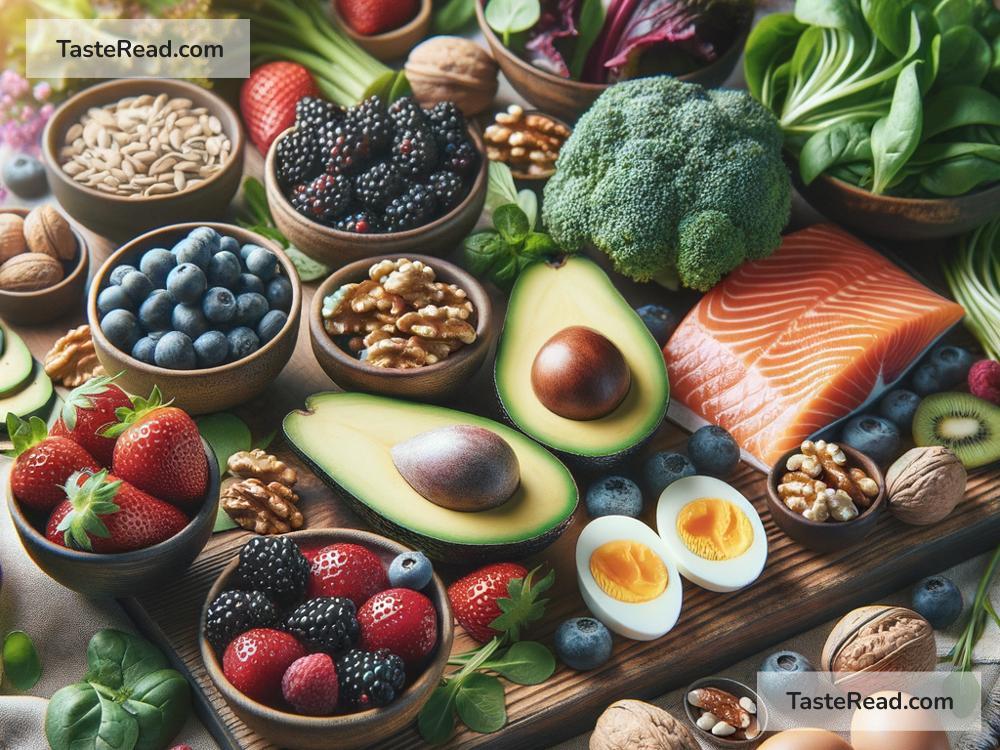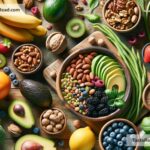Foods for Reducing Fertility Issues: A Simple Guide
Fertility challenges can be stressful for both men and women. While medical treatments can play a key role in addressing these issues, the food you eat also has a big impact on your ability to conceive and maintain a healthy reproductive system. Many studies show that adopting a fertility-friendly diet may help improve the chances of getting pregnant naturally while supporting overall health. In this blog, we’ll explore some foods that are known to positively affect fertility and explain how they work in simple terms.
1. Leafy Greens: Nature’s Fertility Booster
Leafy greens like spinach, kale, and broccoli are great for boosting fertility. These veggies are rich in folate, a B-vitamin that is crucial for cell growth and hormone balance. Folate helps women maintain healthy egg quality and lowers the risk of birth defects. For men, folate can improve sperm health by reducing DNA damage.
How to enjoy leafy greens:
– Add spinach to your morning smoothie or omelette.
– Toss kale into a salad with nuts and seeds for extra nutrition.
– Wrap veggies in a tortilla for a quick and healthy lunch.
2. Healthy Fats: Nourish Your Hormones
Healthy fats, like those found in avocado, nuts, seeds, and olive oil, help regulate hormones, which are essential for fertility. Hormones like estrogen and progesterone play a big role in ovulation and maintaining a healthy pregnancy. Trans fats, found in fried and processed foods, should be avoided as they can disrupt these hormonal processes.
Best sources of healthy fats:
– Snack on almonds, walnuts, or sunflower seeds.
– Drizzle olive oil over salads or roasted veggies.
– Enjoy avocado slices on toast or in a smoothie bowl.
3. Fatty Fish: Omega-3 Power
Fatty fish, such as salmon, sardines, and mackerel, are loaded with omega-3 fatty acids. These healthy fats improve blood flow to reproductive organs, reduce inflammation, and help balance hormone levels. Omega-3s are particularly important for women as they support egg development and uterine health. For men, omega-3s can improve sperm mobility and quality.
How to include fatty fish:
– Grill salmon with lemon and herbs for dinner.
– Add canned sardines to salads or pasta dishes.
– Try mackerel in a sandwich for a quick and nutritious meal.
4. Whole Grains: Stabilize Blood Sugar
Whole grains, like quinoa, oats, brown rice, and whole wheat bread, are packed with fiber and nutrients that help stabilize blood sugar levels. Balanced blood sugar is important for both male and female fertility because high blood sugar can interfere with hormone production. Whole grains are also rich in B-vitamins, which support the health of eggs and sperm.
Easy ways to eat whole grains:
– Swap white rice for quinoa or brown rice.
– Choose whole-grain bread or pasta over refined varieties.
– Make a hearty oatmeal breakfast topped with nuts and berries.
5. Berries: Antioxidant Powerhouses
Berries like blueberries, strawberries, raspberries, and blackberries are rich in antioxidants. Antioxidants help protect eggs and sperm from damage caused by free radicals, which are harmful molecules that your body generates due to stress, pollution, or unhealthy diets. By reducing this damage, antioxidants improve the quality of reproductive cells.
Berries are perfect for:
– Mixing with yogurt or smoothies.
– Adding to whole-grain cereal or oatmeal.
– Enjoying as a sweet snack anytime.
6. Nuts and Seeds: Vital Nutrients
Nuts and seeds, such as almonds, walnuts, sunflower seeds, and flaxseeds, are full of zinc, selenium, and vitamin E—nutrients that improve fertility. Zinc helps with egg quality and supports sperm production, while selenium protects eggs and sperm from damage. Vitamin E can help with hormone regulation and reproductive health.
How to use nuts and seeds:
– Sprinkle sunflower seeds over salads or oatmeal.
– Snack on mixed nuts during your afternoon break.
– Add flaxseed powder to smoothies or baked goods.
7. Dairy: Full-Fat Choices Are Key
When it comes to fertility, it’s better to go for full-fat dairy products rather than low-fat ones. Studies show that full-fat dairy contains hormones that help promote ovulation in women. Options like full-fat yogurt, cheese, and milk can be beneficial when consumed in moderation.
Ways to enjoy full-fat dairy:
– Have a bowl of full-fat yogurt with berries and nuts.
– Switch to whole milk in your coffee or tea.
– Serve a slice of cheese with whole-grain crackers.
8. Eggs: A Protein and Nutrient Powerhouse
Eggs are one of the best foods for improving fertility. They contain choline, which helps with brain development in early pregnancy and may improve egg quality. Eggs are also rich in protein and healthy fats that nourish reproductive cells.
Quick egg ideas:
– Make a veggie-packed omelette for breakfast.
– Hard-boil eggs for a portable snack.
– Add scrambled eggs to wraps or rice bowls.
Final Thoughts
Eating the right foods is a simple yet powerful way to support fertility. By focusing on nutrient-rich foods like leafy greens, fatty fish, whole grains, berries, nuts, seeds, and full-fat dairy, you can help prepare your body for conception. Of course, it’s important to pair a healthy diet with regular exercise, stress management, and medical advice if needed.
Remember, every small change you make is a step toward better fertility health—and overall wellness. So, stock up on these fertility-friendly foods and enjoy the journey to parenthood!


